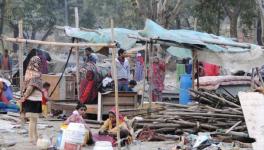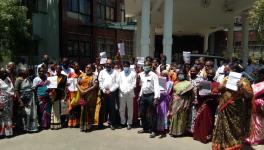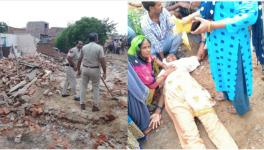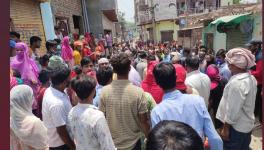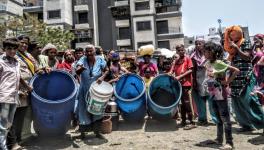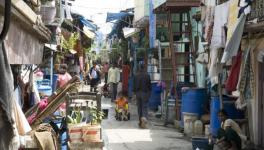Slum Dwellers Have a Right to City: Delhi High Court
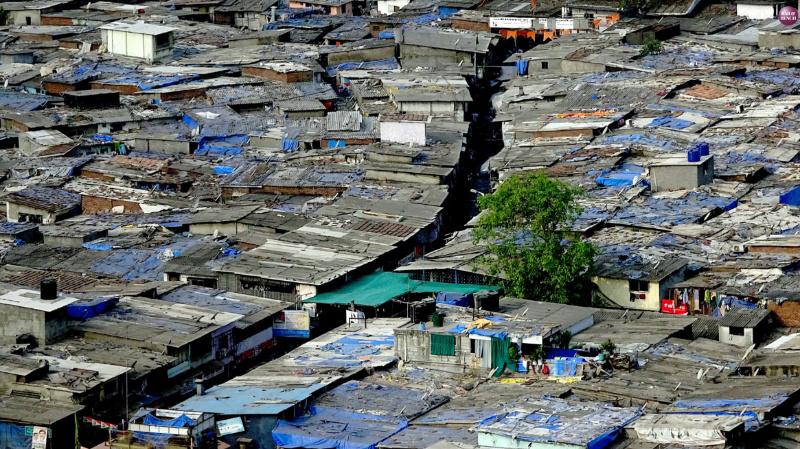
Image Courtesy: Bar & Bench
"A simple vote, without food, shelter and health care, is to use first generation rights as a smokescreen to obscure the deep underlying forces which dehumanise people. It is to create an appearance of equality and justice, while by implication socio-economic inequality is entrenched. We do not want freedom without bread, nor do we want bread without freedom. We must provide for all the fundamental rights and freedoms associated with a democratic society."
These words of anti-apartheid leader Nelson Mandela were cited by a division bench of Delhi High Court on Monday, March 18, when it asserted that the slum dwellers have a Right to City and authorities must make sure that they must be accorded a humane process for eviction and rehabilitation. Delivering judgement on a plea filed by former Congress MP Ajay Maken and two other residents of Shakur Basti whose slums were demolished in December 2015, causing the death of a six-month-old child, the bench of Justice S Muralidhar and Justice Vibhu Bakhru said right to city was integral to right to housing and slum dwellers cannot be seen as illegal occupants without any rights to private and public land.
The judgement added that right to city must include all fundamental rights necessary for healthy urban life in the city. The bench maintained, "right to housing is a bundle of rights not limited to a bare shelter over one’s head. It includes the right to livelihood, right to health, right to education and right to food, including right to clean drinking water, sewerage and transport facilities."
The Bench said that Delhi Urban Shelter Improvement Board should draft a protocol with multiple layers to ensure a hassle-free rehabilitation. It directed the process should begin with a survey to identify eligible slum dwellers for rehabilitation followed by notices with adequate time and arrangements to prevent any mishap and loss of belongings.
More importantly, the judgement said that the affected persons should be preferably rehabilitated by way of in-situ-upgradation of resettlement and rehabilitation implying that they should be relocated to nearby place of their original habitat. The provision of in-situ rehabilitation was felt after many persons who were relocated complained that they not only lost their housing but also their livelihood as they lost access to their jobs.
A resident of Holambi Kalan resettlement colony who requested anonymity said that his family was living in slums at Curzon Road when his house was demolished. After 17 years of resettlement, he is still forced travel 35 kms to Connaught Place for his job. He said," Despite being a resettlement colony, we still lack access to drainage, clean water and basic health facilities. The Delhi Jal Board has recently laid down the pipes for drinking water but no one knows when we will get connections."
A closer observation of the data reveals the miserable condition of slum dwellers in the national capital. The 2011 Census estimated the population inhabiting slums in Delhi to be 17,85,390, of which 7,38,915 lived in notified slums and 10,46,475 in unidentified slums. Another report by Delhi government stated that 86.50% slums depended either on tap or hand pump as the major source of drinking water.
Similarly, access to toilets also remained a distant dream for slum dwellers. The report added, "Most of the residents of about 30% of the slums are using septic tank/flush type of latrine facility. At the other extreme, 22% slums did not have any latrine facility at all.
Indira Basti, located in Timarpur area of the national capital, is one such slum where dwellers are compelled to defecate in the open. Residents complain their slum has only one toilet run by Sulabh International which operates from 6 AM to 11 PM and they often go to the drain after the facility gets closed. Interestingly, the Delhi Legislative Assembly is located only 2 kms away from the slum.
However, social activist Harsh Mander who has been associated with Right to Housing movement makes an important point that the problem is linked with economic inequality and affordable housing/ social housing must be included in town planning by the government authorities.
He said, "At the outset, I welcome the judgement as it is very rare that the rights of slum dwellers are recognised by the court. A general understanding holds that slums dwellers are a problem but it is not. This city cannot survive a day without their contribution. They choose to live in slums in absence of affordable housing. For example, working men’s and women’s hostels can be built in adequate numbers to resolve the issue."
Get the latest reports & analysis with people's perspective on Protests, movements & deep analytical videos, discussions of the current affairs in your Telegram app. Subscribe to NewsClick's Telegram channel & get Real-Time updates on stories, as they get published on our website.









